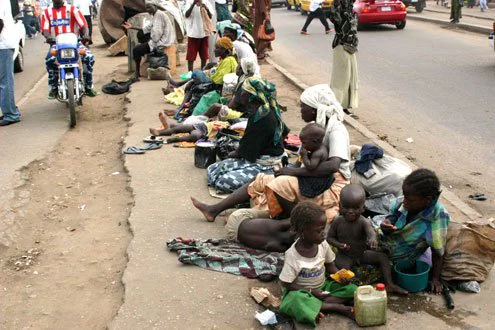Abdulraheem muhammed olarewaju
Mudashiru Obasa, the Speaker of the Lagos State House of Assembly, has stated that the legislative body is considering enacting legislation to stop street begging in Lagos.
Obasa revealed this during an interview with the News Agency of Nigeria at the Ibile Muslim Community Zakat and Sadaqah Foundation inauguration in Lagos, an event supported by Lotus Bank.
Through the encouragement of Zakat, Sadaqah, and Waqf, the foundation seeks to empower impoverished Muslims and reduce poverty. Obasa clarified that the proposed legislation will allow foundations like the Ibile Muslim Community Zakat and Sadaqah Foundation, as well as the state government, to control aid seeking. With this control, donations should reach the underprivileged without them having to beg on the streets, thereby addressing the growing number of beggars in Lagos.
The announcement made by the speaker has sparked various reactions from the public, reflecting a range of opinions on the issue.
In reaction to the statement, a Facebook user, John Kennedy, commented, “Lagos assembly plans law to curb street beggars, the beggars strike but when election draw close them will begin to look for beggars to vote for them. Nigeria we hail thee.” Kennedy’s comment captures general suspicion in politicians’ honesty and inclination to use underprivileged groups for political benefit, reflecting cynicism on the government’s political interest in beggars.
Another user, Blessed Destiny David, suggests that the government should focus on reducing living expenses and supporting basic needs, rather than just removing beggars, to effectively reduce street begging.
He said, “I think government should work on cost of living at least subsidize food if not most of these beggars are APC supporters from north and they vote them into power.”
However, Kizito D Keke Driver’s comment questions begging in northern towns, contending it results from a lack of sympathy among powerful authorities who keep people in poverty to retain control.
He said, “Begging is the destiny and occupation of this northerner even during Goodluck time too. One thing I know is that their own religion does not teach love because they have billionaires especially in politics but these people don’t love their people. They keep them in poverty so they can control them during elections.”
Tuophy Ooluni’s comment suggests regional bias, suggesting beggars should be returned to northern Nigeria, highlighting regional conflicts and implying a view of begging being linked to specific communities. “Let’s carry their almajiri back to northern Nigeria… These people are in a disgusting environment,” he said.
While reacting in a supportive manner, John Bernard Ohi expressed straightforward support for the proposed law. He said, “Good decision.”
Additionally, Lawson Ehigiade expressed a supportive comment by extending the idea to a national scale. “It should be everywhere, including all the airports in Nigeria. The federal government should ban begging in Nigeria. It has been taken too far even into social media,” he said.
Kayode Adegoke sees it as a positive step. He said, “This is a step in the right direction.” Adegoke’s comment aligns with Ohi’s approval, viewing the proposed law as a constructive move towards addressing the issue of street begging in Lagos.
Katibi Rasheed Olayinka’s comment echoes the sentiment of approval, considering the proposed law a positive development for the state. “Welcome development!!!” he said.
Moreover, while reacting, Ever Banega lamented government policies for supporting begging and pushed for the root causes of poverty to be addressed, stressing the need for immediate support, housing, and food. He said, “Make sure you people get them a place to stay and food to sustain them because you people have made this country unbearable for everyone, not only the beggars.”
Additionally, Robert Diamond criticized the government’s broader policies. He said, “When the government in power always used reckless legislative power of tyranny and enacted obnoxious laws for poverty, hardship, hunger, high rates of unemployment, insecurities and other harsh economy. What do you expect, the citizens will turn to begging for a living, some will engage themselves to evil practices that will earn them.













